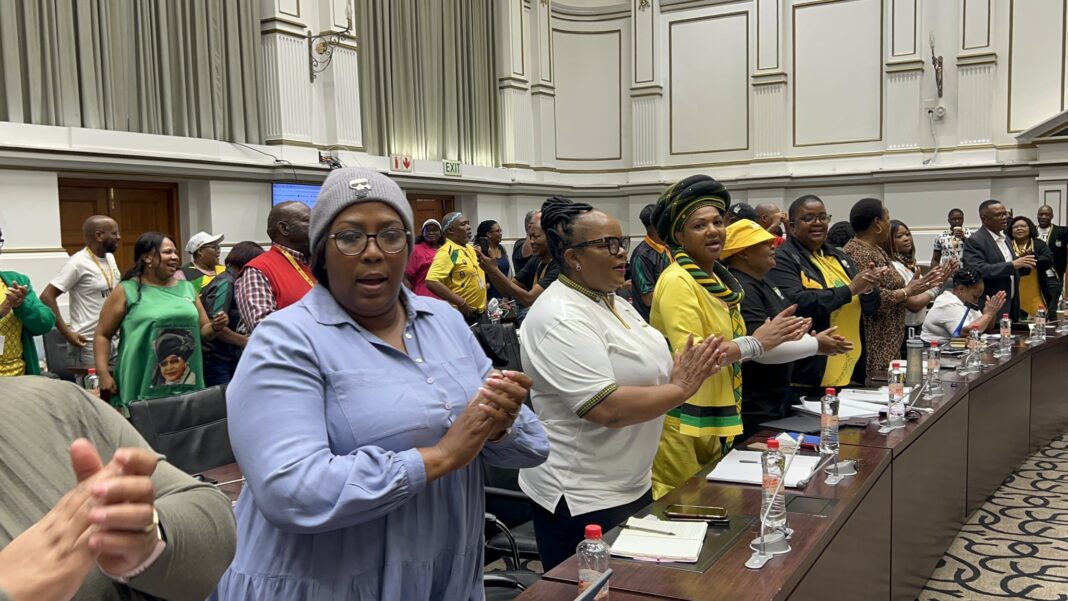By Johnathan Paoli
The African National Congress (ANC) Parliamentary Caucus has expressed confidence in the induction of its MPs, saying the three-day lekgotla was a key moment in marking its first official gathering since the establishment of the seventh Parliament and setting expectations for the new administration.
ANC Chief Whip Mdumiseni Ntuli said the induction process was crucial in preparing MPs to engage with key legislative priorities and carry out their responsibilities effectively.
He noted the challenges of the post-election transition, rating the caucus’s performance so far as a six or seven out of ten.
“It may very well be that because of the demand of that work, we may have appeared as though some of our colleagues were not yet ready to get into the work,” said Ntuli.
“But in my own sense, if I were to rate the performance of our MPs out of ten, I would say a six or seven out of ten, in terms of their attendance to work, in terms of their readiness when they go to portfolio committees.”
One of the key challenges facing the ANC caucus in the seventh administration is adapting to a parliamentary environment where the party no longer holds an outright majority.
This has required greater engagement with its Government of National Unity (GNU) partners, including parties with differing ideological stances.
“At times, they may not agree with us because of ideological differences. I think there’s been a good adaptation of our members in this new environment, but there’s still more that we need to do,” Ntuli explained.
“That’s the reason why we are in this planning session – to look at those weaknesses and to position ourselves to better proceed to discharge our responsibilities.”
Despite tensions with some GNU partners, Ntuli stressed that there is no turning back.
Instead, the ANC caucus must focus on finding solutions within the framework of governance.
A central focus of the lekgotla was the implementation of critical legislation that is set to shape South Africa’s future.
Two key laws under discussion were the Basic Education Laws Amendment (BELA) Act and the National Health Insurance (NHI) Act.
Health Minister Aaron Motsoaledi provided an in-depth briefing on the NHI Act, emphasising the government’s commitment to rolling out universal healthcare.
Ntuli reiterated that the ANC caucus would be closely monitoring its implementation and that discussions with GNU partners would continue despite differences of opinion on the policy’s financial and operational feasibility.
Another issue raised during the lekgotla was the threshold for political party funding.
Ntuli stated that the current system needed to be revisited to ensure a fair and sustainable allocation of funds, especially during time when the ANC, like other parties, is navigating a changing political landscape where coalition dynamics play a significant role.
The chief whip said that as the ANC caucus moves forward, it faces both legislative and political challenges that require strategic planning and engagement, and that the outcomes of the lekgotla will help shape the caucus’s approach to governance, coalition politics, and oversight in the months ahead.
INSIDE POLITICS

